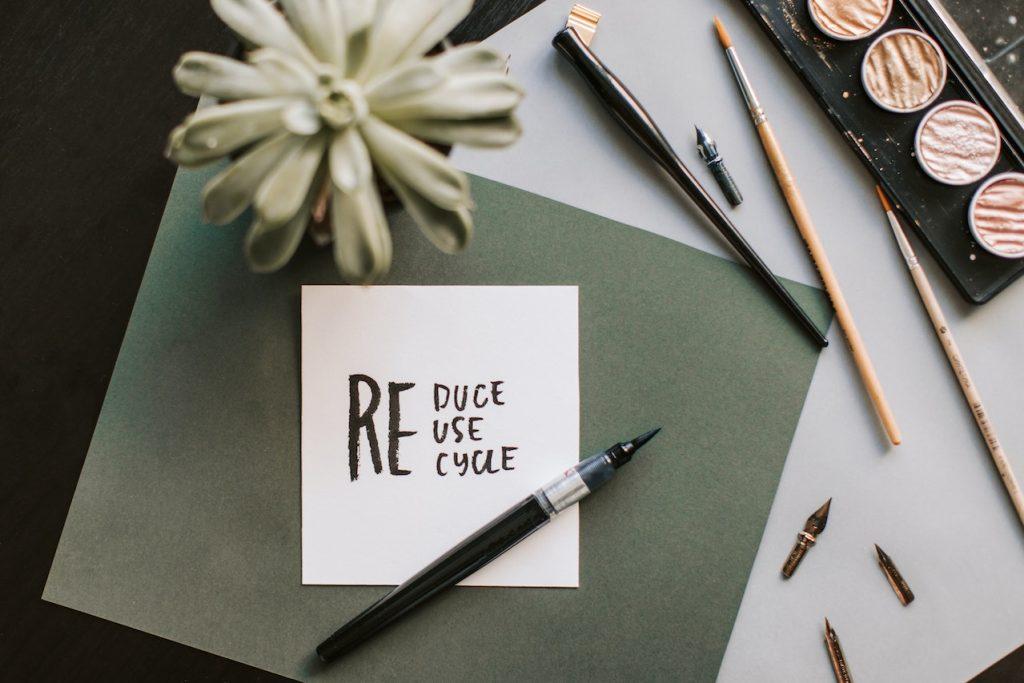
In recent years, sustainable living has become a hot topic. This isn’t a surprise, as more and more people are looking for ways to live a more eco-friendly lifestyle. However, with this increased interest comes several misconceptions. From the belief that recycling is not worth the effort to the idea that sustainable fashion is too expensive, there are many different myths about green living today. By dispelling these myths, we hope to empower readers with the knowledge they need to make sustainable choices.
One of the biggest myths about green living is that it means sacrificing comfort
For many people, the idea of living a green lifestyle may seem like a sacrifice in terms of comfort and convenience. However, the reality is that there are many ways to live sustainably without this. Firstly, green products are becoming more mainstream. As the demand for eco-friendly products increases, more companies are creating sustainable products. These are just as convenient as their traditional counterparts.
Afterward, you should know that energy-efficient appliances and home systems can make your home more comfortable. At the same time, they are also reducing your environmental impact. For example, a smart thermostat can regulate the temperature in your home more effectively. Finally, green transportation options can be convenient and enjoyable, too. Choosing to bike or take public transportation can be an enjoyable way to get around. You can save money on gas and parking while also getting some exercise.

Second myth: Green living is a trend that will eventually fade away
One of the recent myths about green living is that green living is a trend. However, the practices of green living are becoming more important as the world faces environmental challenges. We all know that climate change is a global issue that affects everyone. The scientific evidence is clear that we need to take urgent action. So, green living practices are a crucial part of this effort.
Besides this, environmental concerns are becoming more mainstream. In recent years, many people have become more aware of the impact of their actions on the environment. Additionally, green living is becoming more accessible. From community gardens and farmer’s markets to electric cars and solar panels, many options are now available for people who want to live more sustainably.
Myth number three: Recycling is not worth the effort
Recycling is often seen as a chore, and some question whether it’s worth the effort. But there are many reasons why recycling is an important and worthwhile practice. One of the most important reasons why is that it conserves natural resources. Recycling reduces the need for processing more raw materials. This means we’ll need to use fewer natural resources, which helps to conserve resources for future generations.
Also, it reduces waste and creates jobs. Recycling creates jobs in the recycling industry, which can help to boost local economies and reduce unemployment. Finally, it supports a circular economy. In a circular economy, waste is minimized, and resources are used more efficiently overall. This way, you can help to create a more sustainable future.

Myth number four: Small changes don’t make a difference
Small changes in green living may seem insignificant at first. But they can make a big difference in reducing our environmental impact. Multiple, small changes can add up over time. For example, turning off lights when leaving a room, using reusable bags instead of plastic bags, and choosing to work with eco-friendly companies. However, they can collectively make a big impact. As experts from Affordable Reliable Moving Company say, choosing to work with professionals who care about sustainability makes a big impact. This inspires other companies to choose sustainable practices, too.
As we can see, these actions can also inspire others. When people see others making small changes, it can inspire them to make changes in their own lives. This can lead to a ripple effect, where small changes in individual behavior can lead to larger changes in society as a whole. Finally, they can create new habits that become a regular part of daily life. Once these habits are established, they can become second nature, making it easier to continue making sustainable choices in the future.
Myth number five: Solar panels are not worth it
Solar energy is an affordable and renewable source of energy that can power your home. This means that solar panels can help to reduce reliance on fossil fuels and contribute to a more sustainable future. By generating electricity from solar energy, homeowners can reduce their reliance on grid electricity and lower their energy bills. This can lead to significant savings over time, making solar panels a smart investment in the long run.
In addition, they increase home value. Solar panels have a long lifespan as well, typically lasting for 25 years or more. This means that once you install them, they can continue to provide clean energy for many years. Thus, they are a reliable and long-lasting investment. They may even help you earn money, as some states offer incentives for homeowners who install them.

Myth number six: Sustainable fashion is too expensive
Sustainable fashion is becoming more accessible to everyone, with many affordable and ethical options available. One of the easiest ways to dress sustainably is by shopping for secondhand and vintage clothing. These options are typically more affordable than new clothing. Additionally, they reduce the environmental impact of the fashion industry by keeping clothing out of landfills.
Besides these options, there are now many sustainable fashion brands that offer affordable and ethical options for consumers. These brands use sustainable materials, ethical production practices, and environmentally-friendly packaging to create clothing that is stylish and sustainable. Last but not least, creating a capsule wardrobe is a sustainable way to dress. It involves owning a small number of high-quality, versatile pieces that can be mixed and matched to create a variety of outfits.
Final myth: Composting is a lot of trouble
Some people see composting as a lot of trouble, but the reality is that it is a simple way to reduce waste and create nutrient-rich soil for gardening. Composting doesn’t require any special equipment or expertise. All you will need is a simple compost bin or pile, some food scraps, and yard waste. Composting reduces the amount of waste that goes into landfills, which can help to reduce greenhouse gas emissions and conserve landfill space.
It creates nutrient-rich soil that is perfect for gardening. This can help to reduce the need for synthetic fertilizers and promote healthier plants. You can do this indoors or outdoors, depending on personal preferences and living situations. You can also do composting indoors by using a small bin and making it a great way to reduce waste in small living spaces.
In summary
Many myths about green living can hinder people from making sustainable choices. However, by dispelling these myths, we can encourage more people to live in a way that is both eco-friendly and practical. It’s important to remember that sustainable living is not a sacrifice but a way to live more consciously and intentionally. With accurate information and an open mind, we can overcome the myths about green living and move towards a more sustainable and happy future for all.
